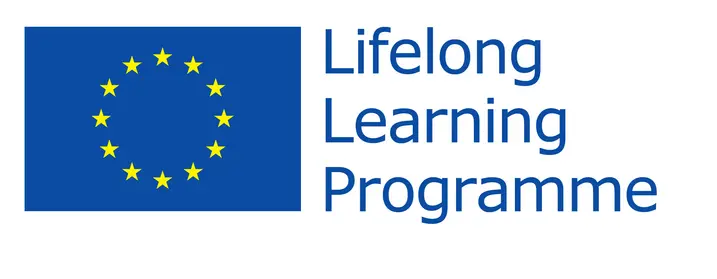Downloads and links
Downloads
Media
- Aquaponic in der Berufsbildung:(PDF 321,9 KB) IUNRintern, Autorinnen: Nadine Antenen; Prof. Dr. Ranka Junge
- Adaption von Unterrichtsmaterialien der FBA (Fachbezogene Berufsunabhängige Ausbildung) Aquakultur für die Berufsschulen:(PDF 1,6 MB) (Kathrin Baumann, Term Thesis ZHAW Wädenswil, 2014)
- Preliminary Monitoring of an Aquaponic System at Biotechnical Centre Naklo: (PDF 504,3 KB)Moje podezelja, authors: Barbara Podgrajsek; Zala Schmautz; Dr. Aleksandra Krivograd Klemencic; Klara Jarni; prof. dr. Ranka Junge; Dr. Tjasa Griessler Bulc
- The Aquaponics-System at Strickhof, (PDF 623,7 KB)Schweizer Bauer: 90 Tilapia im Strickhof-Gewächshaus.Autorin: Susanne Meier. In einem EU-Projekt wird derzeit eine neue Ausbildung für «Fischbauern» entwickelt. Der Strickhof beteiligt sich daran. An der landwirtschaftlichen Schule werden deshalb seit neuestem auch Tilapia gehalten.
- Fish instead of chicken on your farm: (PDF 2,5 MB)die Grüne: Fische statt Hühner im Stall, Autorin: Cornelia von Däniken. Fischmast in der Landwirtschaftszone? Der Zürcher Bauer und Kantonsrat Hans Egli hat eine Motion eingereicht um die Grundlagen zu klären.
- Green revolution: Sendung Doppelpunkt auf Radio SRF, Moderation: Adrian Küpfer, Redaktion: Jürg Oehninger. Urban Agriculture: Grüne Revolution in grauen Städten, Interview mit Andreas Graber ZHAW
- Aquaponics, the future of farming: HACCPEuropa Food Safety and Science, Autor: Editorial Team at HACCPEuropa. Could Aquaponics be the Future of Farming?
- Fish farming in the agricultural zone, Switzerland: (PDF 279,5 KB)Zürcher Bauer: Fischzucht in der Landwirtschaftszone - Info. Autor: unbekannt
- AKVAPONIKA KOT IZOBRAŽEVALNO ORODJE V POKLICNEM IN STROKOVNEM IZOBRAZEVANJU: (PDF 427,7 KB)Didakt, authors: Aleksandra Krivograd Klemenčič, Klara Jarni, Tjaša Griessler Bulc
- Article in Slovenia(PDF 1,0 MB)
AQUAVET leaflets
Links
Our partner's AQUAVET Websites
Social Media
Media
Other EU Lifelong Learning, Projects
More information
The Aquaponic farming course (USA): A four day course designed to prepare students to manage and operate an aquaponic farming business. This is an advanced course and its strongly recommended that attendees have a solid understanding and grasp of aquaponics basics, system types, the nitrification cycle and entry level aquaponic terminology. Students are encouraged to also attend an aquaponics basics class in advance.
Leonardo da Vinci: The aim of Leonardo da Vinci Multilateral Projects «Transfer of Innovation» is to improve the quality and attractiveness of Vocational Education and Training (VET) in the participating countries by transferring existing innovations to new legal, systemic, sector, linguistic, socio-cultural and geographic environments through working with transnational partners. Innovation transfer projects generate synergies by exploiting existing VET innovations (no «re-inventing the wheel»). The Leonardo da Vinci Programme funds several types of projects («actions») related to vocational education and training.
Water fun - hands, minds and hearts on Water for Life!: This is a primary school teaching programme which considers central aspects of Integrated Water Resources Management, focusing on decentralised wastewater treatment and reuse; in a didactically reduced form a sustainable concept of water use is transmitted to teachers and students. The goal is to make an informative and sustainable contribution to Capacity Development. You to get to know the background of this work, the teaching programme as well as the experiences of the workshops for teachers in Jordan, Palestine and Mongolia.
Zebistis: «Zero-Emission» buildings can produce energy, water and resources and do not produce harmful emissions. Decentralized innovative technologies and systems for the realization of zero emission buildings were developed and successfully applied especially in Europe. The project will analyse the transferability of the research findings and of best practice examples to different building types (e.g. housing & commercial) and different urban settings in the participating KORANET partner countries.
Aqua Excel: Coordinating access to top class aquaculture research infrastructures is the aim of AQUAEXCEL, which will be carried out by a pan-European team of aquaculture research facilities. The AQUAEXCEL multidisciplinary team of experts work towards developing an integrated approach to link and coordinate key research infrastructures in Europe in order to create the basis for harmonizing access, joint research, and networking.


